This is the thirteenth article in the Where We Came From series.

Two weeks ago, Electron Dance looked at the birth of Lucasfilm Games and their first title, Rescue on Fractalus! designed by David Fox. Fox is most likely remembered for his graphic adventure Zak McKracken and the Alien Mindbenders (1988) although he also contributed to Maniac Mansion (1987) and Indiana Jones and the Last Crusade: The Graphic Adventure (1989).
Electron Dance recently caught up with David to chat about his Lucasfilm days. Last week, we discussed the growth of the Games Group and the development of Rescue. This week, we talk about Lucasfilm Games moving into graphic adventures, why David left LucasArts and what he has really been trying to accomplish for the last thirty years.
Towards LucasArts
HM: So after the first few titles, Lucasfilm Games began concentrating on graphic adventures and military sims. I think this was around 1985. Ron Gilbert, who had started out with the group converting Koronis Rift to the Commodore 64, hit his stride re-inventing the graphic adventure format. His work had a major impact on the genre, didn’t it?
Yes, I’d say! I think it let them become much more mainstream and potentially removed at least one area of frustration while playing an adventure game – guess the parser. You at least knew what the objects were on the screen, and what verbs you could use to build sentences. What was left, hopefully, was using logic to figure out what combinations to use.
But on the other side of the coin it meant you could often slog your way through a graphic adventure by trying every possible combination of verbs and objects until something worked… that’s not fun.
If trial and error is the only way to solve a puzzle in one of these games, then I think the designers probably failed in designing the game properly. I’ve definitely been guilty of this. You want to lead the player just enough so they have the sudden cognition about how to solve the puzzle and move forward. Not force them to numbly try all possibilities.
The Ah Hah moment is the grand prize.
HM: Another possible side-effect is the rise of the “pixel hunt” to obscure the appropriate nouns. I had a crack at Grim Fandango a few years back and I can recall at least one puzzle needed you to grab the exact right spot. There’s that tension of making everything about combinations versus the mystery of what you can use.
Yes! That’s also really frustrating, especially if the pixel isn’t different.
HM: Tim Schafer wrote a couple of years back about getting a job with Lucasfilm Games, referring to a disastrous interview with a certain David Fox, having let slip that he’d played pirated versions of Lucasfilm titles. He apparently followed up with a resume in graphic adventure format. Maybe you can verify it’s authenticity!
Yep, Tim’s post is pretty much true. Not sure how “curtly” I replied… definitely not the first time someone had told us they had played a pirated version of one of our games. I think maybe I was being playful with him rather than pissed!
His graphic novel resume was awesome, though. I was in charge of finding new “Scummlets” to help us with our future graphic adventure games. I knew the coding wasn’t terribly difficult. Any decent programmer could be taught the language. But we couldn’t teach someone to have a wacky sense of humor, nor creativity. So, Tim’s is an example of a perfect resume for this specific job.
HM: The graphics adventure Zak McKracken and the Alien Mindbenders (1988) is your favourite Lucasfilm Games project because it was pretty much your baby. It’s interesting that as the game world was slowing, becoming more team-based and corporate-managed, you were still able to hold together an authorial vision. Game writers are now just “one of the team” and often complain about being brought into a project too late to do any good. Did the story-in-the-driver-seat period end on your watch or after you left the industry?
As far as I know, it definitely continued, at least at LucasArts, well into the 90s. All of Tim Schafer’s games definitely fall into that category. And same for other top designers. The games that Ron’s created after he left Lucas would also qualify.
So maybe it’s more about the culture of the company than industry standards. I don’t know what it’s like in other companies but the one experience I had at a games company after Lucas, it was pretty disheartening. My idea of what the game should be didn’t at all match with what I was able to get produced.
Zak is my favourite also because it most closely matched my areas of interest… science fiction, comedy, aliens, New Age concepts, psychic phenomena, French bread.
Maniac Mansion was a lot of fun to work on, but it was in support of Ron and Gary (Winnick)’s concept. Indy was fun, but we were somewhat locked in to a script and a set of characters. So yes. My baby, my ideas, though I still had a lot of help in the early brainstorming stage with New Age author David Spangler, and then I couldn’t have done it without Matthew Kane to help script the game and expand on the craziness of the game’s universe.
HM: Maybe there’s an irony that, as you said in the presentation you delivered at the 2004 Assembly conference, you lament focus slipping away from story towards graphics… when Lucasfilm Games started out with games that showcased technology with little story.
True! Harder to have story in 16KB, I guess. My understanding as to why Lucas stopped doing graphic adventures was primarily the huge production costs vs the return. They were getting more and more movie-like, with huge teams.
So maybe they went too far down the road of production values, raising the bar on each game… far enough so that it became impractical. But Telltale seems to have a good balance.
I can’t talk too much on today’s games. I’m still pretty far outside of the industry. Haven’t been to GDC for a decade, and I’m not playing PC or console games. Not even playing that many app games.
![[Picture of David Fox at Assembly 2004 conference]](https://www.electrondance.com/wp-content/uploads/2011/08/david-fox-assembly-2004.jpg)
Casino Mentality
HM: Lucasfilm Games was the first of many new corporate game development shops which, in the 90s, edged out bedroom developers who couldn’t compete with the high production values that attracted all the cash. Although that spirit has returned in recent years with a vengeance, did we lose a certain vitality during this “corporate takeover” of the game space? Or did it promote a need for polish and refinement that had been lacking in the haphazard pioneering years?
I think the answer is yes to both… and I think we’re seeing the same thing starting to happen now in the app space.
We’re starting to see games coming out with real budgets, both for production and marketing. That could easily squeeze out the small shops. How do you get noticed when there are 500,000 apps in the iTunes app store? Word of mouth for really great games is one. Huge marketing budgets would be another.
But even more, if you have a game with a $100,000 budget, and you can see every dollar on the screen in great production values and gameplay, will people be satisfied with home grown art and twitchy gameplay? The bar is slowly – maybe rapidly – being raised, and it will be harder for something without polish to get very far.
HM: And again being both a good and bad thing…
Yes, definitely. In the 80s and 90s, I think a lot of companies saw the millions of dollars they could make and jumped into the space without knowing how to create games so there were probably a lot of big budget games that were still not very good.
Having the money doesn’t guarantee a hit at all, otherwise we’d see a much higher ratio of hits in the film industry as well. But I think it does affect people’s perceptions about what they’re willing to look at.
Would we accept sloppy green screen work in a Sci-Fi film today?
HM: It’s an interesting point. And we now know that going back to our “old game favourites” just isn’t as fun as it was back then as our standards have risen during the intervening years. We just enjoy feeling young again, when we played that first time, but then put those games away to play with something modern.
Yeah, which is one reason I’m still amazed people are playing Zak now.
HM: Some games have definitely survived. Not quite timeless, but they have endured.
I guess when you play an old game you don’t have to compare the graphics to today’s. And when you watch an old Science Fiction film, you make allowances for the effects, as long as the story and acting are compelling.
Speaking of apps… I think there’s a casino mentality going on…
HM: How so?
People are focused on the few games that have made it big, such as Angry Birds. And those games are being featured in the media, and people are thinking, “Wow, if I could make a game that sold just 10% of Angry Birds, I’d be rich.”
But they maybe don’t realize that the people behind this game had been in the game industry for years and had created 50+ earlier games, mostly for other clients. They’ve paid their dues and knew what they were doing when they set out to make a hit.
So by casino I mean that you only hear about the people who win the jackpot. Not the millions of people who leave with less in their pockets than when they arrived.
Another good analogy which has been used a lot in relation to the app store is the gold rush era. In the early days there were many fewer apps, and people were happy to download anything that looked like fun or piqued their interest. It was easy to find territory to stake your claim that still had gold nuggets. And now we have half a million apps. How many are making enough in sales to pay back development costs? I don’t know the figures since Apple doesn’t publish breakdowns like that, though there are quite a few articles that do some number crunching and estimate what average sales might be per app. Hint: most developers aren’t making a lot of money.
But it’s probably very similar to other entertainment forms although much worse since the cost to enter the field is so much lower. And it will probably move even more in that direction, with only the top tier making their investment back, as larger and more experienced developers and publishers enter. So, you have to have other reasons to develop apps besides the money. Promoting a book, for example, or just getting your work out there, or for the fun of it!
HM: There’s a similar thing in the indie gaming space, although not as pronounced. For example, the incredibly successful Minecraft has been used as an indicator that indie gaming is booming. But it’s just an outlier: Minecraft is a game that happened to make $1M and doesn’t represent the whole scene which is still about backbreaking work in a fickle market. I also recall there’s talk, now, of an investment bubble in app gaming.
Yes, I’d believe it. One more piece of the analogy: I’ve heard it said that after the initial gold rush, the only people making money were those supplying the shovels. So in the case of apps, it could be just the app development houses – those hired to create apps under contract – or the tool makers that are making money.
HM: Apple is probably making a lot out of it. Don’t they take something like 10% of a sale?
Hah! 30%. But I’ve also heard that Apple is probably breaking even on the iTunes app store, that it costs a lot to keep it running. Curating which apps to highlight and reviewing each app before it’s allowed to go into the app store. Then there’s the cost of the servers, bandwidth, etc.
So it could be that they’re not making a lot on this, but they are making the money on the hardware sales.
HM: The curating aspect has attracted some ire, of course. But I can’t see Apple doing it any other way.
I don’t begrudge them the 30% at all but I would like them to make it easier to find apps in specific categories. Our app is in the Books category. Ours is for 8-14 year olds, but it shares the category with younger kids, adults, R-rated content, and content created in other languages.
So it’s hard to browse and find our app, though you can find it if you know what search terms to use… guess the parser again!
Electric Eggplant
HM: So let’s talk a bit about your app. These days you work with your wife Annie under the Electric Eggplant label and you’ve released your first app, Be Confident In Who You Are for the iPad. It’s based on your wife’s Middle School Confidential graphic novel series for children. How is that going? Do you intend to do more of these apps?
We’re having a blast doing this. Even though we set up Electric Eggplant back in 1992, this is really the first production of our own rather than as consultants for others. So we’re loving the freedom, much like when we created the Marin Computer Center in 1977.

HM: How things come around.
Yes! Our first app is getting strong reviews and since this one is based on just the first book of Annie’s series, we’re planning on doing similar apps for Books 2 and 3. We also have a series of story book apps for younger kids based on original stories Annie has written.
HM: Is the app a game or more of a digital book?
Definitely not a game. It’s a graphic novel app. Other than its content, which is all about social and emotional learning for tweens done in story form, the one thing that makes it stand out from other graphic novel apps is the sound and music we have running throughout.
I did some of this myself, but got a lot of help from Julian Kwasneski of Bay Area Sound who was a sound designer at LucasArts, but not during the time I was there.
Dream Park
HM: I want to touch on your final project at LucasArts, the Rescue on Fractalus!-like flight simulator called the Mirage pod you created with the now-defunct Hughes Aircraft Company. It sounded extraordinary. Do you think you could get a project like this green-lit again some day?
I’d love to be involved in a project like this. I did get to work on one for a year in 2001. There was a company called Xulu that was using off-the-shelf PCs and graphic cards, some great artists – many from Industrial Light & Magic – and created a series of games that ran in their pods. They had some on pretty good motion bases and used multi-screens, but the overall cost per pod was way lower than Mirage because of the PC graphics cards.
It was a lot of fun, but they eventually closed due to lack of funds to take it to the next step, like an actual installation, rather than the R&D they were doing. They’re now re-purposing a lot of the art and games as an online virtual gaming experience, now in production.

So, on a tangent: my dream from the start was to create an interactive theme park. And starting with computer games seemed the most practical. Have you read Dream Park?
HM: No.
[HM Note: Dream Park (1981) is a novel by Larry Niven and Steven Barnes set in a futuristic theme park which is more interactive virtual reality than on-rails setpieces.]
I loved a lot about that book. What if Disneyland’s attractions were all fully interactive? Where you could get off the Pirates of the Caribbean boat at any time and interact with the other pirates… maybe for an hour, or a day. Or instead of the new Star Tours 2 attraction having 50 pre-recorded scenarios, you could pilot the shuttle yourself and it would never be the same twice?
So combining role playing with high-tech environments and Disney or Star Wars production values. Not sure if I’ll see it in real life, the closest might be a motion simulator. Like the Mirage project I got to work on during the last two years I was at Lucas.
HM: This makes more sense now, why that project was the last thing you did and you had to leave after that. You’d reached your destination, where you had wanted to go, but it didn’t work out due to the financials. And go back to video games? That would be tough.
Yes… when I first arrived at Lucasfilm I told Peter, then Steve, that this is want I wanted to be doing. They said, “Maybe at some point in the future. Do games now.” So I did, had fun doing it, but always hoped we’d eventually be doing location-based entertainment.
So, after the Mirage project closed down, I couldn’t see myself going back to games again. When I left, I did spend a year or two doing consulting work in the same area but when that dried up, I ended up going back to games.
HM: You’ve done a bit of theme park work since. What were you working on?
I got to co-design, with Annie, something at Tokyo DisneySea – the Leonardo Challenge. It did get implemented and I believe it’s still running.
HM: I lived in Japan for five years – I LOVE TOKYO DISNEYSEA.
Yay! Do you know The Fortress? It’s supposed to exist in the 17th century around the time of all the famous explorers. And it’s at the foot of the huge volcano. It’s gorgeous, but there wasn’t a lot to do there.
HM: That’s right. Nice to walk around, but nothing to interact with.
So our task was to create an overlay experience, a game. Kind of a treasure hunt or scavenger hunt, where you’re going from station to station and solving puzzles… wait, that sounds like an adventure game!
That’s really what it was, but using the amazing structure and environment instead of graphics on a screen. What was finally implemented was scaled down from our original design, but the core storyline and a lot of the gameplay elements we came up with were used.
HM: I’ll have to make another trip back to Japan one of these days and I really want to stop by Tokyo DisneySea again. Especially now I know David Fox’s latest game is there!
Hah! And since it’s all in Japanese, you might actually be able to understand what’s happening. Our son happened to be in the region right around the time it opened. He got to play it, but there was definitely a language barrier. Hopefully when you go, it will still be there!

HM: So, one last question. Brian Moriarty essentially wants games that can change people’s lives. But it occurs to me your educational app is already making a difference to children. I wonder if you get more satisfaction out of this “smaller” more personal project than the theme park work or the various AAA titles you were once attached to?
Yes and no…
Yes, we’re definitely having a big impact on people’s lives now. It fully supports the work Annie does with kids, parents, and educators and takes it to a new level.
But the one thing I forgot to mention earlier regarding my interactive theme park vision was the whole point of doing that wasn’t for thrill seekers, it was intended to change people’s lives. That was our stated purpose when we set off on this path in 1976, to create an immersive experience that would help people to know themselves better. Sounds trite but that was the intent, and it’s really what has guided us in all the work we’ve done since. And one more reason I liked Zak was that I got to pull in some of that stuff, even if it was subtle and comedic.
In Orson Scott Card’s Ender’s Game there was an iPad-like device that the main character, Ender, had. On it was a type of graphic adventure game. But the game was super intelligent, essentially sentient. And it knew Ender very well, what his strengths and weaknesses were and all about his blind spots.
So it would create puzzles and quests within the game that would force Ender to come up against these blind spots. While he pondered how to solve the problems, he’d also be breaking through some of his own personal barriers or shortcomings. So his “Ah Hah” moment in the game coincided with an Ah Hah moment in his real life as he realized how he had been viewing some aspect of the world or reality with blinders on.
That’s a small part of what the book was about, but I loved it because it matched what I had been imagining an adventure game or interactive theme park could eventually become.
So… if I had a chance to do a theme park experience that could also change lives… wow. That would be awesome.
HM: David, thank you for taking so much time out of your schedule to talk to Electron Dance.
Download my FREE eBook on the collapse of indie game prices an accessible and comprehensive explanation of what has happened to the market.
Sign up for the occasional Electron Dance Newsletter and follow on Bluesky or Mastodon!


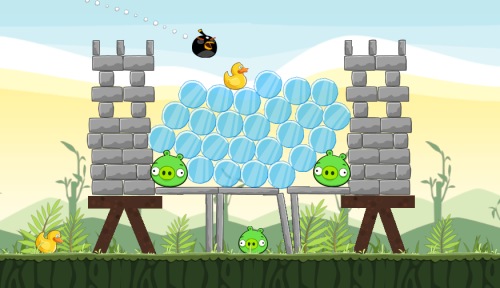




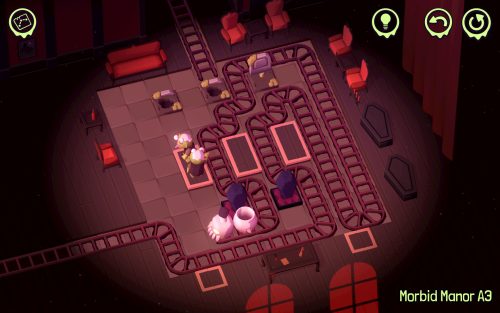
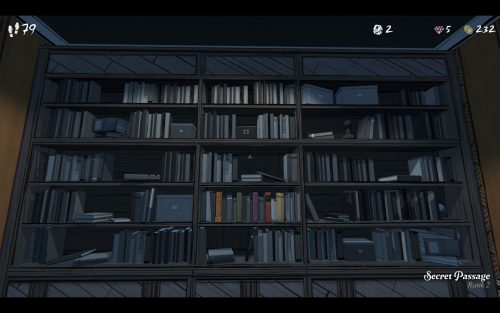
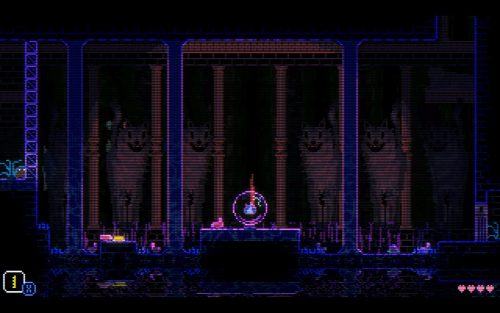
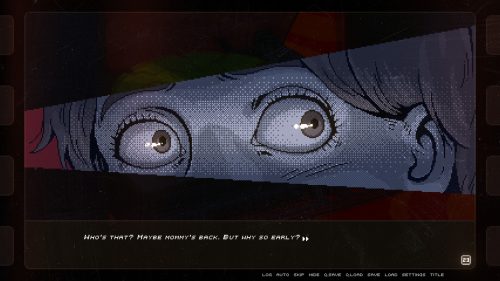
It’s funny how Mr. Fox is correct in asserting that we allow for lower fidelity in older films when we view them, but I’m not entirely sure it’s as prevalent for games. Then again, I played SNES RPGs on an emulator long before I got into the more recent ones, so I still followed the tech curve despite being not actually living with it.
Maybe that’s the best way to educate future generations on games. I thought obscure Squaresoft game Live-A-Live was perfect in high school, so I can appreciate its strengths better now despite knowing its deficiencies (following the modern paradigm of what constitutes good game design, of course).
P.S. I totally forgot about that Ah Hah aspect of Ender’s Game- so much so that I can’t recall anything about it now. Now I’m just thinking of songs across a-ha’s lengthy discography, which is AWESOME.
Yes this is one of the little bits that has been buzzing around in my head over the weeks since the interview was conducted. I agree with you: if Michael Abbott’s essay “Unplayable” is anything to go by, old games are rusting away. Not because they are at fault, but because “we” are, the gamer species that moves forward.
Watch a film from the 1920s and you can appreciate it in its own context, but a game requires you to put in actual effort – it’s interactive so you can’t just sit there and consume – and modern advancements in UI design mean we just don’t have as much fun with rubber joysticks as we do with the ergonomics of today’s gamepads or mice even, just to cite a physical example.
(Expect a lot more of this over the final two weeks of Where We Come From.)
…and I should be open and honest here – I’ve never read Ender’s Game.
Excellent interview – just excellent. Would have said so earlier, mind, but finding the time to read all of it proved quite a challenge this particularly hectic August. Oh, and did I mention what an excellent interview this was?
Thanks gnome! David was a great interviewee and perhaps too accommodating for his own good when I kept on coming up with questions. =)
Still, I know the length is a fearsome thing. I’ll have to try to keep it down in future as I think article length is putting people off… but there were so many interesting curveballs that came out of the second half of the conversation that it would have been criminal to cut any of this out.
Oh no, the length is just fine. Really, it’s jsut me and tons of stuff waiting for my attention… Really really.
Some interesting points in there that start to make sesne about certain comments made about a certain article…
Yes.